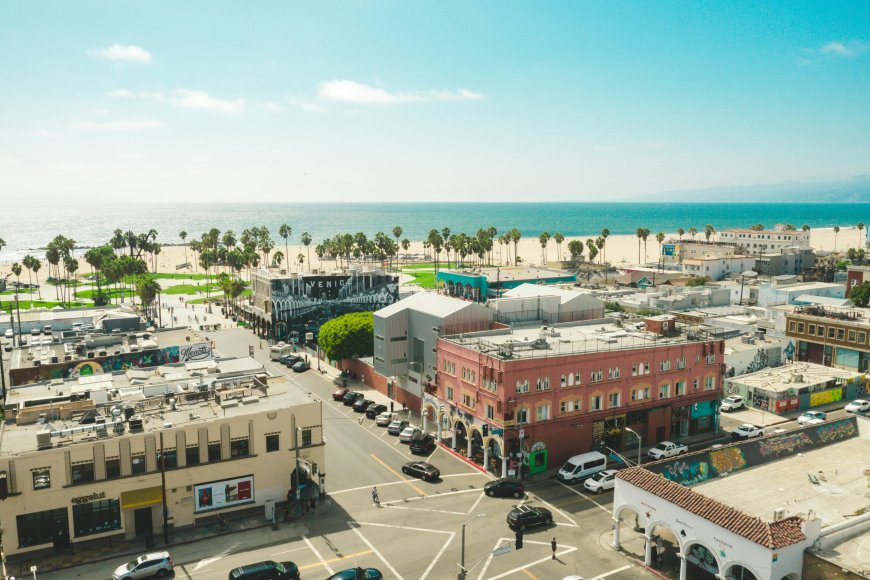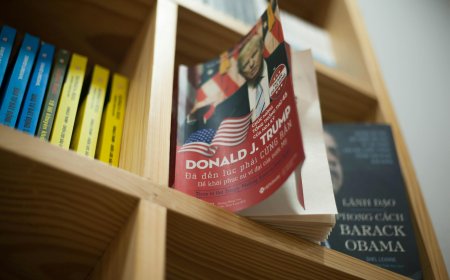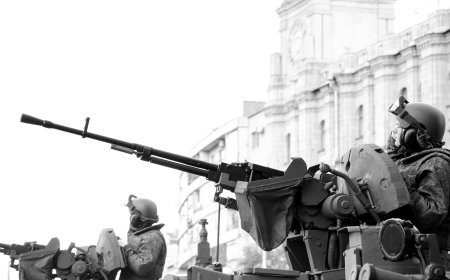Tariffs Spark New Fire: Why Even Extinguishers Aren’t Safe
Trump’s sweeping tariffs now cover fire extinguishers, raising costs for safety equipment as trade wars seep into everyday life.

Trade wars are usually measured in billions of dollars, in stock market swings, or in tense negotiations between Washington and Beijing. Rarely do they feel as tangible as when you walk into a hardware store to buy something as ordinary — and essential — as a fire extinguisher.
But that’s exactly what happened this summer. In a sweeping expansion of U.S. import duties, the Trump administration announced new 50% tariffs on steel products, and tucked inside the long list of affected goods was something unexpected: fire extinguishers.
The symbolism is hard to miss. At a time when wildfires, household accidents, and rising insurance costs dominate headlines, one of the simplest tools of protection has been swept into a political battle over trade.
Fire Extinguishers on the Tariff List: A Surprising Target
The new tariffs are part of a broader strategy to push U.S. manufacturing forward while punishing foreign competitors, especially China. Most analysts expected steel beams, pipes, and automotive parts to be affected. Few imagined that fire safety equipment would get caught in the crossfire.
The result is that items many families and small businesses view as essential will likely become more expensive. Retailers warn that a 50% tariff on imported steel extinguishers could translate into a 15–20% jump in consumer prices once supply chains adjust.
For households already struggling with inflation and rising costs of living, it’s another squeeze in a place few expected.

The Real-World Impact: From Wildfires to Everyday Safety
To understand why this matters, consider the backdrop.
- California wildfires have left thousands homeless and pushed insurers to raise premiums or pull out of certain regions altogether.
- In states like Arizona and Nevada, wildfire season now stretches nearly year-round, straining emergency services.
- Even in urban settings, fire safety equipment is not optional — landlords, restaurants, and offices are legally required to maintain extinguishers.
The new tariffs mean that safety compliance costs will climb, and for small businesses, that extra expense can make the difference between profitability and survival.
A Story from the Ground: The Small Business Squeeze
At a family-owned diner in Phoenix, Arizona, owner Maria Delgado recently had her fire extinguishers inspected, a requirement under local fire codes. When she called her supplier for replacements, she was told the cost would soon be going up.
“I thought he was joking,” Delgado said. “Why would a fire extinguisher be political? But he explained it was because of steel tariffs. We’re already paying more for eggs, more for insurance, more for electricity — and now fire safety too?”
Her frustration echoes across countless small businesses that feel they are being asked to carry the weight of a geopolitical contest they never signed up for.
Trump’s Tariff Playbook: A Broader Pattern
The inclusion of fire extinguishers is not random. It reflects a broader philosophy guiding the Trump administration’s trade policy: no product is too small or too symbolic to be weaponized in the effort to reset America’s relationship with global supply chains.
In recent weeks, the administration has:
- Floated allowing Nvidia to export modified chips to China, under strict revenue-sharing agreements.
- Pushed Intel to accept U.S. government stakes in exchange for subsidies.
- Expanded tariffs on everyday items, from kitchenware to industrial equipment.
Each move signals a willingness to reach deep into the mechanics of daily commerce, leaving both multinational corporations and mom-and-pop shops adjusting in real time.
Safety vs. Strategy: The Policy Debate
Critics argue that targeting fire extinguishers undermines public safety. They warn that rising prices may discourage some families from keeping extinguishers in their homes, or lead small landlords to delay replacing outdated units.
Proponents counter that the long-term benefits outweigh the short-term pain. By incentivizing domestic production, they argue, the U.S. could create a self-sufficient safety-equipment industry less reliant on overseas suppliers.
The debate reveals a deeper tension: how much should consumers be asked to sacrifice today for the promise of future economic independence?
The Human Side: A Firefighter’s Perspective
In Los Angeles, firefighter Daniel Whitman has seen firsthand the devastation of recent wildfires. When asked about the tariffs, he paused before answering.
“Look, I understand the politics. I get that trade is complicated,” he said. “But when I walk into a home after a blaze and see people had nothing to fight it with, that’s not politics — that’s tragedy. If the price of an extinguisher goes up and someone decides they can’t afford one, that’s a risk we all carry.”
His words underline the emotional dimension of a policy debate that might otherwise feel abstract. For those on the frontlines of disaster response, the cost of safety isn’t a headline number — it’s life or death.
Global Ripples: Allies and Rivals React
The decision also reverberates internationally. Steel exporters in Canada, South Korea, and Europe now face a tougher U.S. market, straining diplomatic ties. For Beijing, the message is blunt: the U.S. is willing to apply tariffs to nearly any category of goods.
Some allies worry that the broad sweep of tariffs could spark retaliatory measures, leading to a tit-for-tat escalation that raises costs globally. For U.S. consumers, that means higher prices not just for fire extinguishers, but potentially for a wide range of products imported from abroad.
Conclusion: The Politics of the Everyday
The Trump administration’s tariffs are no longer just about steel mills or semiconductor giants. They now touch the fire extinguisher mounted under the sink, the one hanging in a classroom, the one a firefighter reaches for in an emergency.
By expanding tariffs into such unexpected corners of life, the administration has transformed a distant policy tool into something people feel in their wallets and in their homes.
The question, as always with trade wars, is whether the short-term pain delivers long-term gain. Until then, one thing is clear: even fire safety is not immune from geopolitics.
FAQs
1. Why are fire extinguishers included in Trump’s tariffs?
They are made with imported steel, which is now subject to a 50% duty under the administration’s expanded tariff policy.
2. How much more will fire extinguishers cost?
Retailers expect consumer prices could rise by 15–20% once tariffs filter through supply chains.
3. Do tariffs improve U.S. manufacturing?
They can encourage domestic production, but often raise consumer costs in the short term.
4. Could tariffs affect public safety?
Yes. Critics warn higher costs might discourage households and small businesses from keeping adequate fire protection.
5. Will these tariffs affect other safety equipment?
Potentially. Any product reliant on imported steel or aluminum could see similar price hikes if included in tariff lists.
আপনার প্রতিক্রিয়া কী?
 পছন্দ
0
পছন্দ
0
 অপছন্দ
0
অপছন্দ
0
 ভালোবাসা
0
ভালোবাসা
0
 মজার
0
মজার
0
 রাগান্বিত
0
রাগান্বিত
0
 দুঃখজনক
0
দুঃখজনক
0
 বাহ
0
বাহ
0



























































